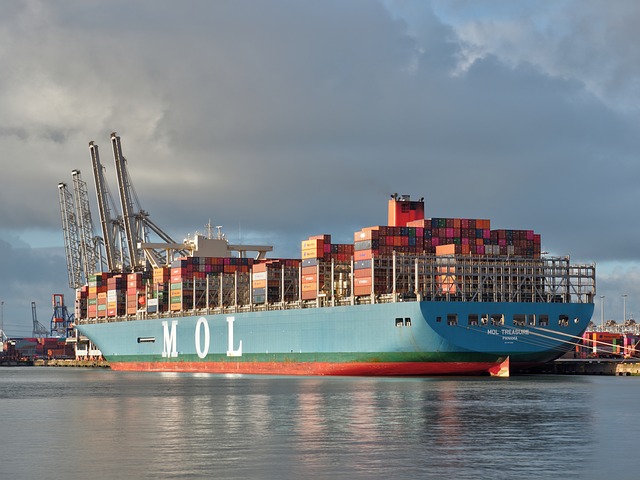(Uploaded: 2025/6/16)

Japanese Consumption Tax Refunds on Export Sales and Required Documentation
Did you know that Japanese companies that sell goods or services to overseas customers are often eligible for a consumption tax refund? While this is a common mechanism under Japan’s consumption tax system, it can be somewhat difficult to understand. This article explains why such refunds are granted, which transactions are eligible, and how to properly document them.
Why Are Consumption Tax Refunds Available for Export Transactions?
As a fundamental principle, Japan’s consumption tax applies only to goods and services consumed within Japan. As the consumption tax is established under Japanese law, taxing items consumed outside Japan would be inconsistent with this principle.
Consider the following example:
- Company A (a Japanese company) purchases parts within Japan and assembles them into a product, which it then exports to a customer in the United States.
- Although Company A pays 10% consumption tax when purchasing the parts, the final product is not consumed in Japan but is instead used in the U.S.
- Company B (the seller of the parts in Japan) charges Company A consumption tax, and Company B subsequently pays that tax to the Japanese tax authority. In effect, Company A indirectly pays the tax via Company B.
Because the purchased parts are ultimately used overseas and not consumed in Japan, Company A is eligible to receive a refund for the consumption tax paid. This system exists to reflect the logic that “exports are not domestic consumption and therefore should not be subject to Japanese consumption tax.” Imposing consumption tax on such exports would, in effect, pass the cost on to foreign customers, which would mean taxing non-domestic consumption.
What Types of Transactions Qualify for Consumption Tax Refunds as “Export Transactions”?
Under Japanese tax law, certain transactions are treated as “export transactions” and are exempt from consumption tax. These include categories that may not be intuitively considered exports. The main types include:
- Export sales of goods, such as automobiles (manufactured products)
- Provision of services to overseas companies or individuals, including information services and consulting
Other types are defined in greater detail by law, but these two categories cover most common cases (note that duty-free sales by retailers, such as electronics stores, are not addressed here).
Businesses (including sole proprietors) that conduct these types of transactions may be eligible for tax refunds. However, several important conditions must be met:
- The business must be a taxable entity under the consumption tax rules. (Tax-exempt entities are not eligible.)
- The portion of export sales must be sufficiently high. If the portion of taxable domestic sales is too large, refunds may not be available.
- A consumption tax return must be filed for a refund. This differs from the typical return filed to pay taxes.
- Proper documentation must be retained to prove that the transaction qualifies as an export, such as export permits or contracts.
Of these, confirming taxable status and securing valid documentation are especially critical. While tax professionals can easily determine your taxable entity status, the burden of proof for export transactions lies with the company’s internal operations. Company owners, sales teams, and accounting staff must remain vigilant in properly managing documentation. Failure to retain the correct paperwork—or keeping incomplete or incorrect records—could result in the denial of refunds.
What Documentation Is Required to Prove Export Transactions?
There are two main categories of export transactions: (1) export sales of goods and (2) provision of services to overseas customers. Each requires different forms of documentation:
1. Provision of Services to Overseas Customers
Let me start with the simpler one. Since the provision of services to overseas clients/customers typically does not involve customs procedures, proof is established through documentation exchanged between the parties. Retain contracts or equivalent records that include the following details:
- Name and address of your company
- Name and address of the foreign client/customer
- Date of service provision
- Description of the service
- Amount (i.e., sales amount)
2. Export Sales of Goods
The required documents depend on the method of export:
(a) Export Permit Notification (輸出許可通知書)
This is the most common form of export documentation. If you use an international courier service such as DHL or FedEx, ensure you request and retain this document for each shipment (You may not receive it unless you request it yourself). Note that if exports are not made under your company’s name, refunds may be denied, except in specific exceptional cases.
(b) Postal Shipment Documentation (for shipments under JPY 200,000)
When exporting items via postal service (by Japan Post) with a value of JPY 200,000 or less, retain the following:
- Proof of acceptance by the postal service
- Waybills or receipts showing the exporter’s name and destination
Shipments must be traceable, such as through EMS or registered mail (Kakitome). If item names, quantities, or prices are not stated on the documents, you should manually annotate the missing information.
Summary
Consumption tax refunds on export-related sales are based on the principle that consumption tax should not apply to goods and services not consumed within Japan.
Eligible transactions include not only the export of physical goods but also the provision of services to foreign entities. However, obtaining a refund requires careful attention to several key conditions. The two most important are:
- Confirming taxable entity status (tax-exempt entities are not eligible)
- Proper retention of documentation proving the export transaction
Even if the transaction is genuinely export-related, insufficient documentation may result in ineligibility for a refund and could instead lead to an obligation to “pay” consumption tax.
A proper understanding of the refund system, along with the meticulous preparation and retention of supporting documentation, is essential. It is crucial that sales, accounting, and management personnel within your organization remain informed and compliant with these requirements as part of their daily operations.

Interesting read! It’s helpful to see how Japanese companies can get a refund on consumption tax for exports, since the tax is really meant only for goods and services used inside Japan.
Thank you for your comment.